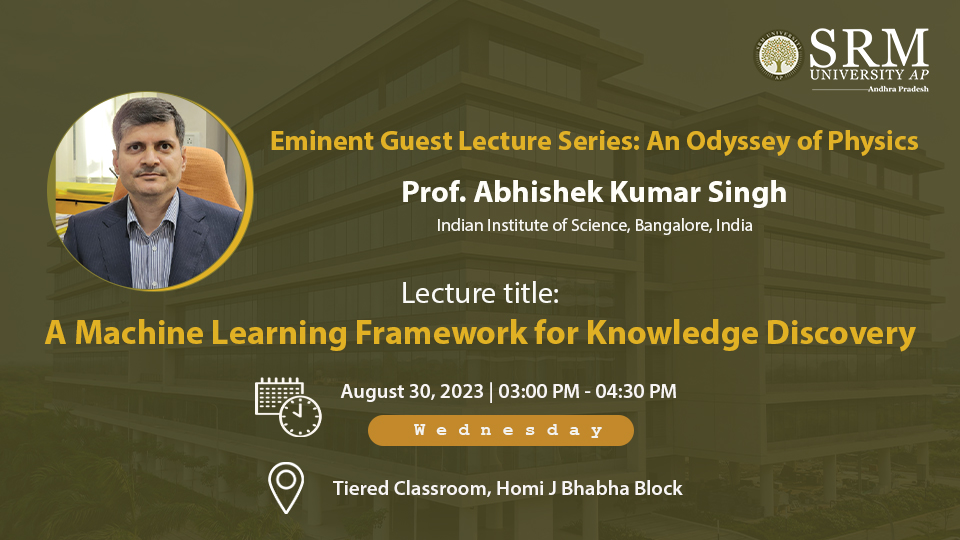- This event has passed.
Prof. Abhishek Singh on Machine Learning Techniques in Material Sciences.
August 30, 2023 @ 3:00 pm - 5:30 pm

The Department of Physics is organising the ninth session of its Eminent Guest Lecture Series: An Odyssey of Physics on the topic “A Machine Learning Framework for Knowledge Discovery” on August 30, 2023. The session will be delivered by Prof. Abhishek Singh, Indian Institute of Science, Bengaluru. He will discuss the application of ML in establishing the complex structure-property relations in alloys.
Join the talk for an insight session on Machine Learning in Material Sciences!
Abstract
Data-driven machine learning methods in materials science are emerging as one of the promising tools for expanding the discovery domain of materials to unravel useful knowledge. In this talk, the power of these methods will be illustrated by covering two major aspects, namely, the development of prediction models and the establishment of hidden connections. For the first aspect, we have developed accurate prediction models for various computationally expensive physical properties such as band gap, band edges and lattice thermal conductivity. The prediction model for band gap and band edges is developed on a 2D family of materials -MXene, which are very promising for a wide range of electronic to energy applications, which rely on accurate estimation of band gap and band edges. These models are developed with GW-level accuracy and hence can accelerate the screening of desired materials by estimating the band gaps and band edges in a matter of minutes. For the lattice thermal conductivity prediction model, an exhaustive database of bulk materials is prepared. By employing the high-throughput approach, several ultra-low and ultra-high lattice thermal conductivity compounds are predicted. The property map is generated from the high-throughput approach, and four simple features directly related to the physics of lattice thermal conductivity are proposed. The performance of the model is far superior to the physics-based Slack model, highlighting the simplicity and power of the proposed machine learning models. For the second aspect, we have connected the otherwise independent electronic and thermal transport properties.
The role of bonding attributes in establishing this relationship is unravelled by machine learning. An accurate machine learning model for thermal transport properties is proposed, where electronic transport and bonding characteristics are employed as descriptors.

